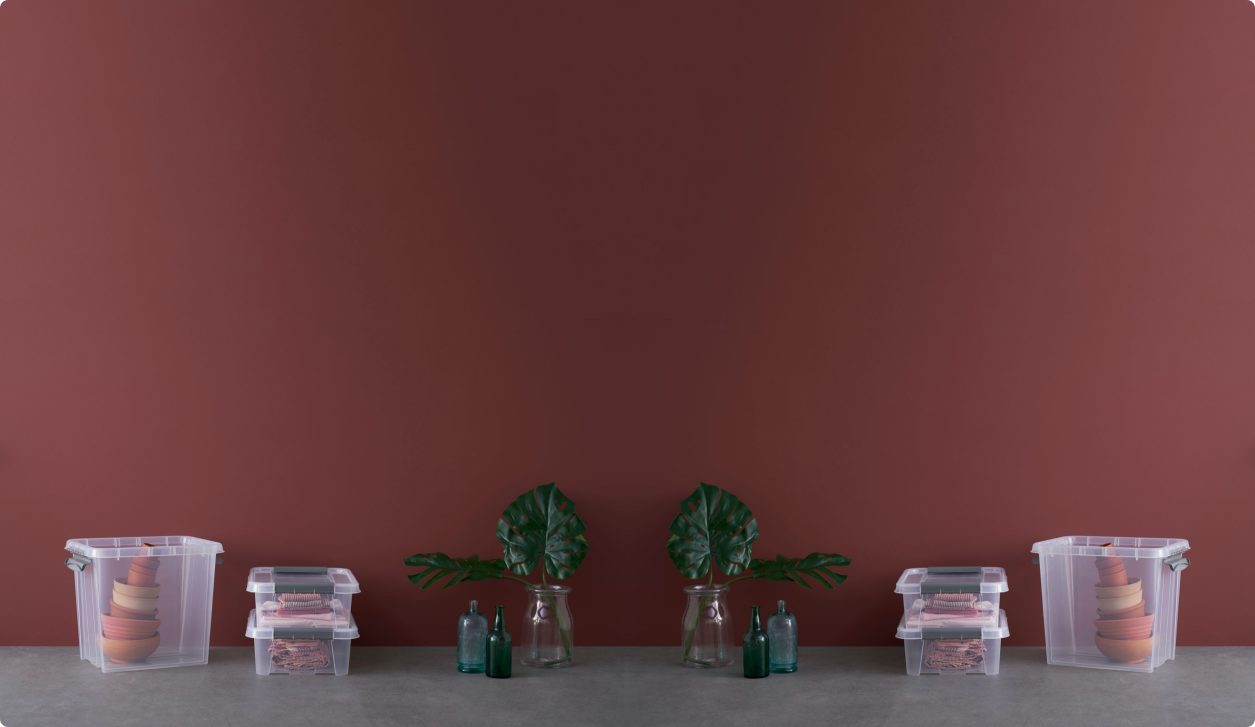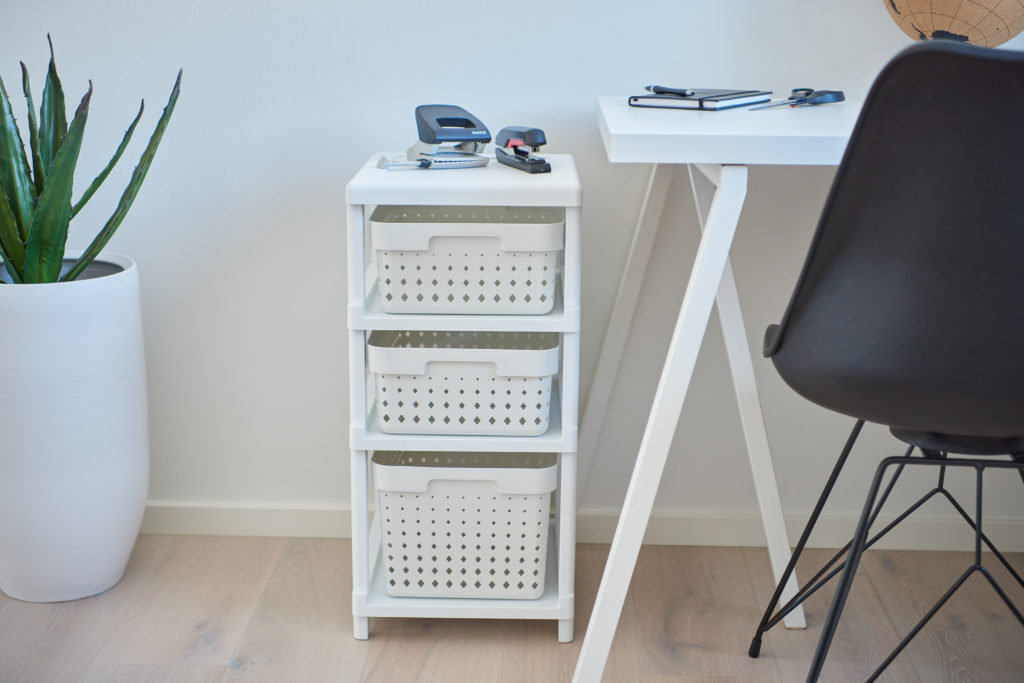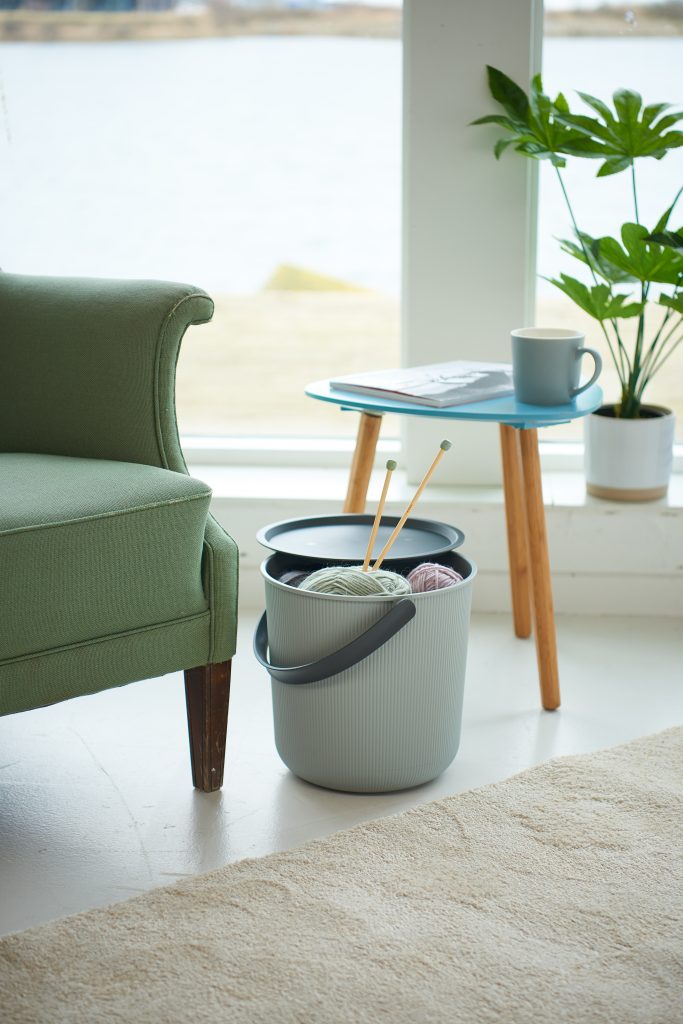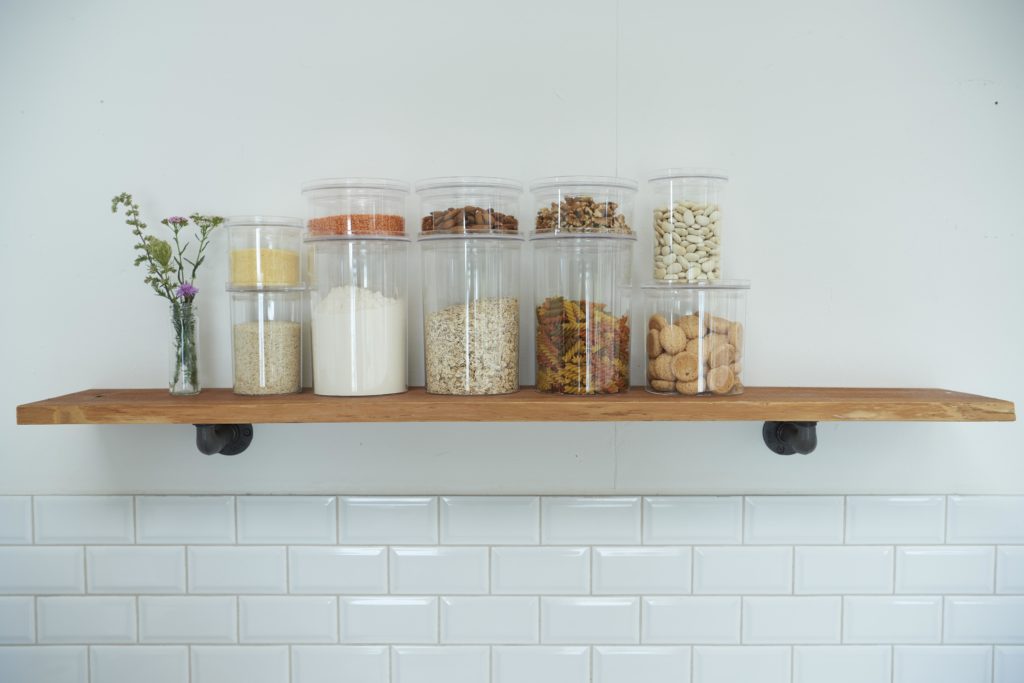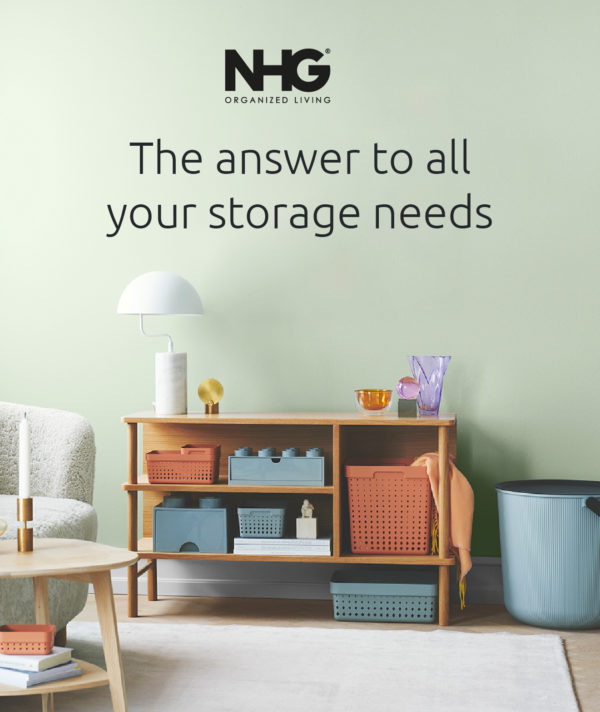How to Avoid Food Waste at Home
In the Western World, the biggest food wasters are the consumers. Thus, the consumers have the biggest potential to stop wasting food and give a real contribution to the fight against food waste. If you learn how to avoid food waste, you will save your money, you will save your time and at the same time you will help the environment. What is not to like?
Use your food: Use the food that you already have in your refrigerator, your kitchen cupboards and in your freezer. Less food waste means that you will save your money, you will save your time – and at the same time you will save the planet and you will also respect the work done by the farmers spending their valuable time and efforts in producing your food.
Go with the flow
Have a flow in your fridge, your freezer and your kitchen cupboards, so the older items are placed at the front – and preferably at your eye level, so you are constantly reminded to use up that food first.
Find the center
Have a central place to store your leftovers and use your leftovers in new meals, no matter if it is a weekday, weekend or a holiday like Christmas/Easter/Thanksgiving/Hanukkah/Eid/etc. Store your leftovers in a central place in your refrigerator, so you always remember to use them.
Love your leftovers
Create a new attitude towards your leftovers. When you use your leftovers, you save a trip to the supermarket, you save your time and you save your money. A leftover chicken can be used in an omelet. A leftover cream can be frozen and used in soups or stews.
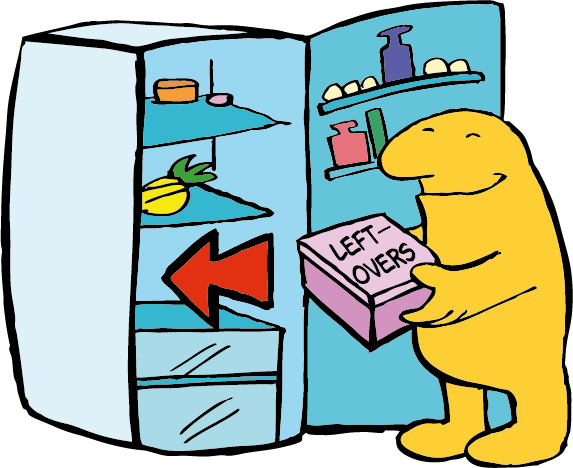
Empty Your Fridge Days
A good idea for using up all your leftovers in your fridge. Sunday is usually a good day to cook meals with leftovers and eat thought your fridge.
Empty Your Freezer Days
A good idea for using up all your leftovers in your freezer. Once every second month, have an Empty Your Freezer Day too. Also, be sure to have the Empty Your Fridge/Freezer Days before holidays like Christmas/Easter/Thanksgiving/Hanukkah/Eid/etc. to make new room for all the good leftovers.
Make leftovers look good
Make sure that your meal with leftovers look aesthetically pleasing – just because it’s leftovers, it does not mean that your plate should look like trash. The meal should always look inviting.
Your fridge is not your bin
Your refrigerator is not your garbage bin – make sure that no old leftovers are left to die in the back of your fridge. Remember not to overstuff your fridge. If you overstuff your fridge, it will be more difficult for the cold air to circulate in the fridge – and thus keeping the food fresh. Keep good hygiene and regularly clean your fridge and your freezer.
UFO’s – the Unidentified Frozen Objects
Spooky! Stop producing the UFO’s – yes, the Unidentified Frozen Objects in your freezer. UFO’s are all the good leftovers that you freeze and then forget all about them for a year or two. After a year or two, you usually throw them out. Your time, your money, good food and your electricity bills all for nothing. Prevent UFOs by freezing the leftovers in smaller portions, and always have a system to note what you have frozen and when. And remember to use the food in your freezer, so your freezer won’t become the last stop before the garbage bin.
Store the food
Learn to store the food properly – apples, pears, bananas, and oranges should not be in contact with each other, otherwise they will ripen faster. Tomatoes, avocados, potatoes, bananas, and citrus fruits must be stored outside the refrigerator. Use packaging only suitable for food.
“Best Before” doesn’t mean “Toxic After”
Learn about the date labeling – the “Use By” label is used on fresh meat, fresh fish, fresh chicken, etc. It is not advisable to eat the food after the expiration of “Use By” date. Meanwhile, the “Best Before” label is used on pasta, rice, cookies, chocolate, corn flakes, etc. You can eat the food after the expiration of “Best Before” date. In other words, “Best Before” doesn’t mean “Toxic After”.
Less is more
Do not cook for 11 people if you are 8 people for dinner – many people constantly tend to cook and serve too much food. A good idea is to cook 30% less food and to calculate portion sizes before making the food.
Smaller is better
Use smaller size of plates and dishes – by using a smaller size plates and dishes on the dinner table, you will make sure that you will waste less food. The bigger the plate is, the more you are tempted to fill it up with food. A smaller size of plate also prevents overeating.
More is not better
More is not always better – focus on quality of food, rather than quantity. When you buy food of better quality, you will also tend to waste less. It is much easier to waste cheap junk food than more expensive organic food.
No sweat
The food should not sweat on the dinner table for many hours – no need to put all the food on the dinner table at once. Serve gradually to keep the food fresh.
Don’t mix it up
Do not mix things when saving your leftovers – many dishes are better if not mixed up, so they can be stored better. Store vegetables and meats separately for optimal reuse.
Always have a plan
Have a plan for your leftovers – so you are going to eat them, and not just forget them in your fridge. If you have a plan for your leftovers, you will be more inclined to use them instead of throwing them away.
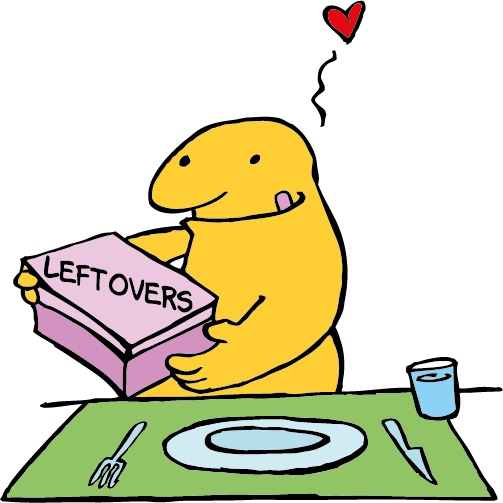
Save your food
Most of your surplus food and the leftovers can be frozen. Leftovers of many dishes can be frozen. Bread can be sliced up and frozen. Even cream, herbs, vegetables, fruits, hard cheese can be frozen as well. But remember to keep track of your frozen leftovers and remember to use them. Also, freeze in smaller portions for better convenience and optimal reuse.
Have many food storage containers
Have a great number of food storage containers to store your leftovers. A good advice is also to have a roll of fridge and freezer bags located directly in your refrigerator. This will automatically remind you to use them and save your food. Have your food storage containers at hand, so you can use them and do not hide them too far away.
Food Waste Diary
Keep a Food Waste Diary during holidays like Christmas/Easter/Thanksgiving/Hanukkah/Eid/etc. to track how much food you throw out and why. That way you will learn to do better and better next time the holidays are approaching.
Sharing is caring
Share your surplus food with your neighbor if you have cooked too much food. After a big dinner, give homemade doggy bags to your guests. If you have fruit trees in your garden, but no time to pick the fruits, use social media to engage your friends to come and help you to pick the fruits. Bonus: You will get happier friends and neighbors.
From food to food
Regrow your food – you can regrow celery, garlic, spring onions, cabbage, salad, herbs, fennel, coriander, carrots, leeks and much more – right in your own home. Join the regrow trend and grow your own free food.

